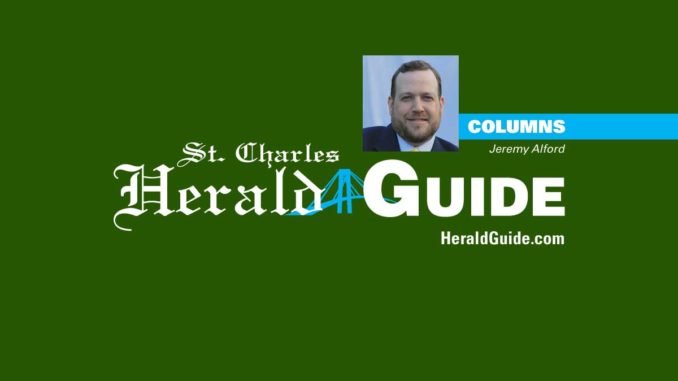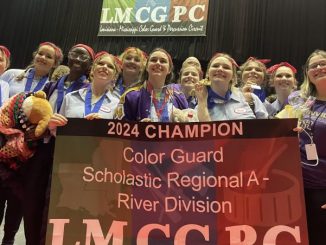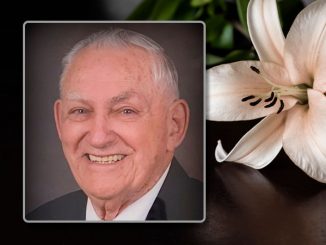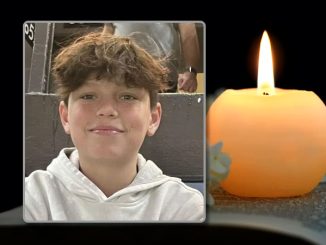
Before delivering the prayer that opened the regular session for the lower chamber on Monday, Rep. Patrick Connick, R-Marrero, joked that he was considering drawing inspiration from the words of St. Jude, the patron saint of desperate cases and lost causes.
“But we’re not there yet,” Connick said to a sprinkling of laughter.
It was an otherwise lighthearted start to a regular session that’s sure to be tainted in some small way — or possibly larger ways — by the mistrust and acrimony that was kicked up by the failed special session that was adjourned prematurely just one week earlier.
That’s when the House failed to forge a compromise on how best to address a budget shortfall that was said to be in the neighborhood of $1 billion. Now it’s closer to $700 million, due to an expected revenue bump from federal tax changes.
“I know you haven’t been away for very long, but I hope that in the past week you have had time to rest and refocus on the work that we have ahead of us,” Edwards told a joint meeting of the Legislature this afternoon. “I do not want the roadblocks of the special session to hamper us from what’s most important – making life better for the people of this great state.”
Since this is an even-numbered year, lawmakers won’t be voting on the same tax bills that were proposed during the recent special session. The regular session will instead host a variety of policy topics and a debate over the state budget, which, if actually passed, will have to be balanced by lawmakers to reflect $700 million in less revenue.
The lay of the land in the Capitol will take some time to read properly, but the same basic philosophical divides remain. While Democrats — and some Republicans — are open to increasing certain kinds of taxes, many conservatives remain convinced that the state budget can absorb enough cuts to further shrink the anticipated shortfall that takes hold when the new fiscal year begins July 1.
“If that’s what you truly believe, now is your opportunity,” Edwards said during his opening speech. “To those that say we can cut our way out of this, it’s your time to step up to the plate and make the specific cuts that you insist can be made.”
Freshman Rep. Jean-Paul Coussan, R-Lafayette, said he’s willing to support cuts in the budget, but like Edwards and others, he’s still waiting to see if a spending document emerges from its originating committee and what it will contain.
“I think we have the right people on the Appropriations Committee to do the job they were elected to do,” Coussan said.
To be certain, lawmakers will feel the pressure soon. The governor said he has been working with Senate President John Alario and House Speaker Taylor Barras to end the non-fiscal regular session ahead of schedule, possibly in mid-May, in order to convene the year’s second special fiscal session — “at no additional expense to taxpayers.”
“And no, it will not be easy. I never said that it would be, but I believe it will be necessary,” Edwards said, later adding, “There is no denying that we have some very difficult work ahead of us. In this session, you are also supposed to pass a budget. As I’ve said before, I do not support or consider the budget recommendations I was constitutionally obligated to present back in January as a reasonable option. I’m certain the majority of you don’t either.”
But the budget isn’t the only item on the regular session menu. More than a thousand bills, ranging from gun control measures and constitutional convention calls to fishing license adjustments and equal pay campaigns, will help distract lawmakers from their fiscal charge.
Veteran Sen. Fred Mills, R-Parks, said he hopes the volume of legislation doesn’t actually serve as a distraction from the larger goal at hand. “I think because were hitting it all early, we’ll be okay,” he said. “But we’ve got to keep up that pace. In my committee, Senate Health and Welfare, we’ll one looking to consider 10 to 12 bills every week.”
Political History: Rodrigue and the Blue Dog Dems
Before George Rodrigue’s Blue Dog made Louisiana’s “I Voted” sticker a hot item, the late artist’s iconic creation had another significant impact on politics.
After the historic gains made by Republicans in the 1994 midterm elections, two Louisiana congressmen, Billy Tauzin and Jimmy Hayes, joined with a group of fellow House Democrats, mostly from the South, to push for a more conservative agenda. Working together, Tauzin and Hayes founded their group as a new Democratic caucus.
With 23 initial members, the bloc was the largest collection of swing votes in the House, not closely allied with either President Bill Clinton or House Speaker Newt Gingrich.
They began calling themselves the “Blue Dog Democrats.”
Holding the first meetings in Tauzin and Hayes’ offices, the group drew the inspiration for their name from Rodrigue’s famous “Blue Dog” paintings hanging on the congressmen’s walls. The name was also partially derived from the “Yellow Dog Democrats” of the 1920s, who were said to be more likely to vote for a dog than a Republican. When asked about the moniker, one member joked that partisanship had turned the yellow dog blue.
Rodrigue, for his part, was not enthusiastic about the congressional caucus named for his artwork. While he had done portraits of presidents, governors and other prominent politicians (some of which are on display in LaPolitics’ Capitol office), he preferred to stay strictly nonpartisan, working for both Democrats and Republicans alike. For example, Rodrigue painted works for both Kathleen Blanco and Bobby Jindal during their respective terms in the Governor’s Mansion.
According to Rodrigue’s wife, Wendy Rodrigue, he later said, “Without my permission they adopted my image. As usually happens with hometown folk, they assumed that they were doing me a favor. Instead I’ve spent the past twenty years trying to distance myself and my artwork from this connection.”
For their part, the group’s Louisiana co-founders left within the first year. Tauzin joined the Republicans in the summer of 1995 and Hayes followed suit in December. But the Blue Dog Coalition continues to this day on Capitol Hill, their website still attributing the name to a reluctant Cajun artist.
They Said It
“One hump would be fine.”
—Senate President John Alario, R-Westwego, when asked if he would prefer a unicameral legislature
“I understand lonely because I’m a Democrat from the South.”
—New Orleans Mayor Mitch Landrieu, during the recent Gridiron Show in Washington, D.C.





Be the first to comment